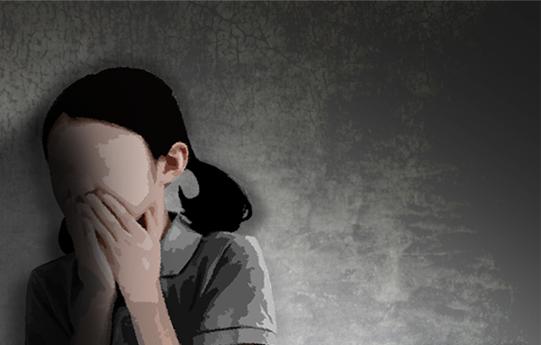 |
| ▲ Image of child abuse (Source: Newsis) |
The number of cases of child abuse, which was 2,160 in 2017, has increased more than 2.5 times in four years. According to the Ministry of Health and Welfare, 52,083 cases of suspected child abuse were reported as of 2021, and 5,517 cases of abuse were repeated within five years after being judged to be child abuse. This accounts for 14.6% of all child abuse cases. It turned out that 96% of the students who attended school last year, experienced abuse due to their parents. As for the type of abuse, "emotional abuse," was the most common at 38.9%, followed by, "duplicated abuse," at 38.5%, "negligence," at 11.1%, and, "physical abuse," at 11.1%.
Eighty percent of the damage done in child abuse cases is at home. Child abuse at home is complexly related to internal and external problems within the family, such as lack of parenting attitudes or knowledge, social and economic stressors, and/or marital and familial conflicts. The Community Chest of Korea and the Child Rights Guarantee Agency have been operating the, "Home Care Planner Supporters," project with the Lottery Committee fund since 2017, to support families who are concerned about child abuse, and abuse due to such problems. The Home Care Planner Supporters is a project aimed at reducing the risk of child abuse, recovering from the aftereffects of abuse, improving the parenting attitude of abusers, and improving the case management expertise of institutions and project executives.
Not only children affected by child abuse within their families, but also abusers and family members are eligible for support. Instead of the existing method, the so- called, "Home Care Planners," which includes social workers and psychotherapists, who visit homes to provide services such as psychological counseling, daily life support, and professional services from institutions. According to a research team led by Kim Kwang- hyuk, a Professor of Social Welfare at Jeonju University, abused children supported by Home Care Planner Supporters decreased their depression and anxiety by 50% and 75% in child depression tests (CDI) or child anxiety tests (RCMAS), respectively. The constructive results of the support project were found not only in abused children but also in abusive family members. Prior to the implementation of the Home Care Planner Supporters Project, perpetrators thought all incidents were due to children's problematic behavior, resolved negative emotions by drinking, and the rate of visits to institutions related to college management was low, making it difficult to improve after death. However, after the implementation of the Home Care Planner Supporters Project, the abusers went through a self- exploration process and looked back on themselves, receiving various support and treatments, such as art therapy and psychological tests through home visits. Abusers objectively recognized their inner problems and gradually began to open their minds and engage in counseling; practicing concrete improvement methods with actions. This change in guardians also played a positive role in reducing children's flight problems. Kim Kwang- hyuk, a Professor of Social Welfare at Jeonju University, explained, "The method of providing services directly to homes by Home Care Planner Supporters has greatly reduced cases of denial of service and dropouts, and has greatly contributed to increasing the number of professional services."
So far, a total of 25,142 Home Care Planner supporters have been supported. The Community Chest of Korea and the Lottery Committee announced that they plan to support about 2,500 children and family members from 25 child protection institutions nationwide starting next year. An official from Home Care Planner Supporters said, "During the project, the victims recovered from the aftereffects of abuse, and the risk of abuse was reduced from abusers." This seems to represent a positive change in all participating family members, he stressed, adding, "We will continue to strive for the safety and recovery of children and families affected by child abuse." Children who have been hurt by previous experiences of abuse cannot easily shake off their fear of abuse, fearing that it will happen again. For the emotional recovery of abused children, for the steps of reflection and improvement of abusers, social support as well as continued attention from everyone is needed.
By Seo Ji-min, cub-reporter jmseo1215@naver.com
<저작권자 © The Campus Journal, 무단 전재 및 재배포 금지>

 Shrinkflation, Consumer Deception
Shrinkflation, Consumer Deception




